Beer culture goes back centuries. Tradition requires not only an establishment with the appropriate atmosphere and, of course, the beer itself, but also the glassware in which it should be served correctly. Glasses for craft beers – exquisite and made according to all the canons – are an important part of a hoppy feast.
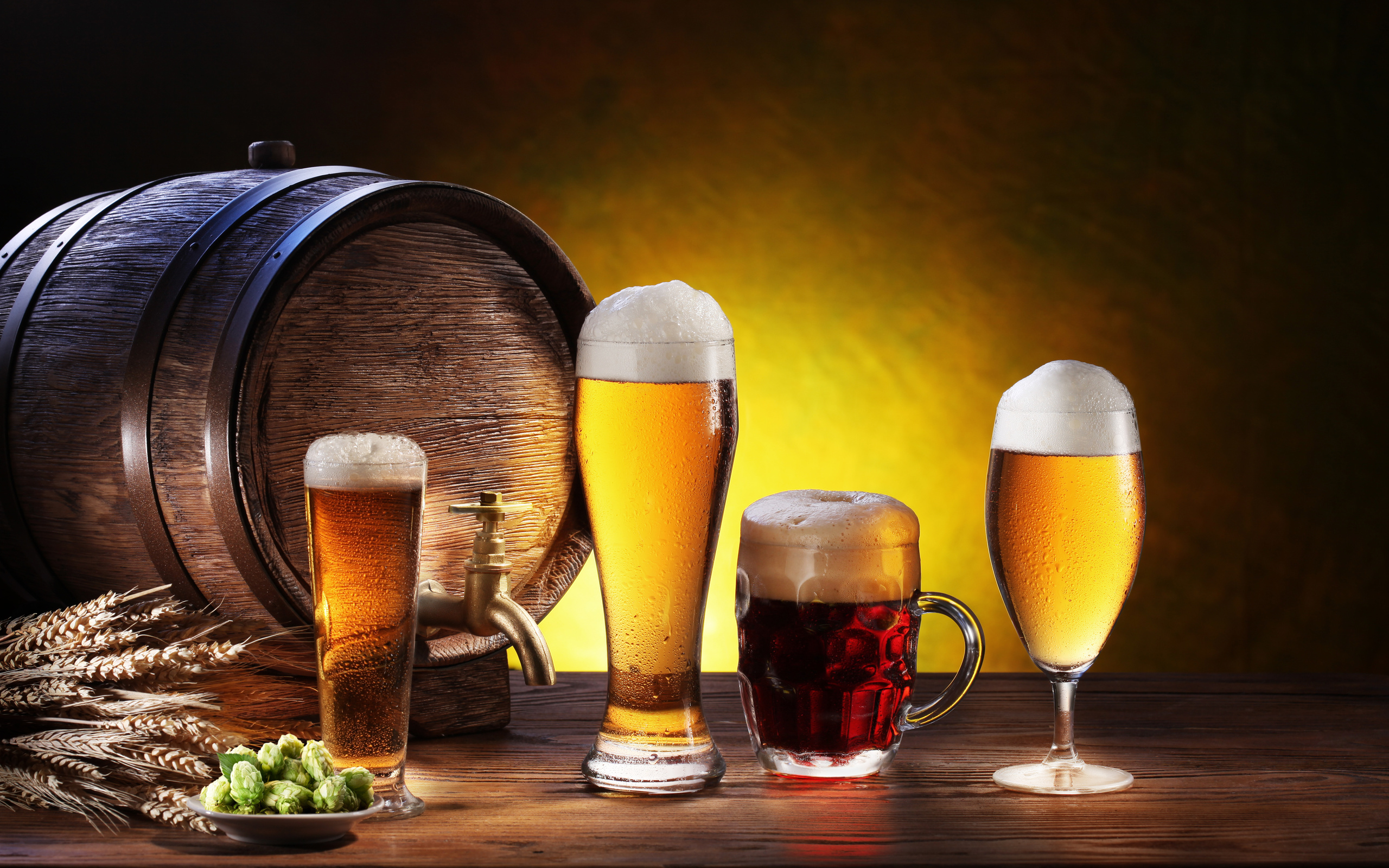
You can buy them in sets or individually, they have different volumes and types, and different materials of manufacture. The rules of serving suggest taking into account all these nuances, since true connoisseurs understand that the taste of a particular variety depends, among other things, on the type of dishes in which it is served to the table. Modern technologies allow you to create real creations that do not allow heat from your hands to pass to the contents and not a drop of moisture appears on the outside. We choose beer glasses taking into account all the criteria and nuances.
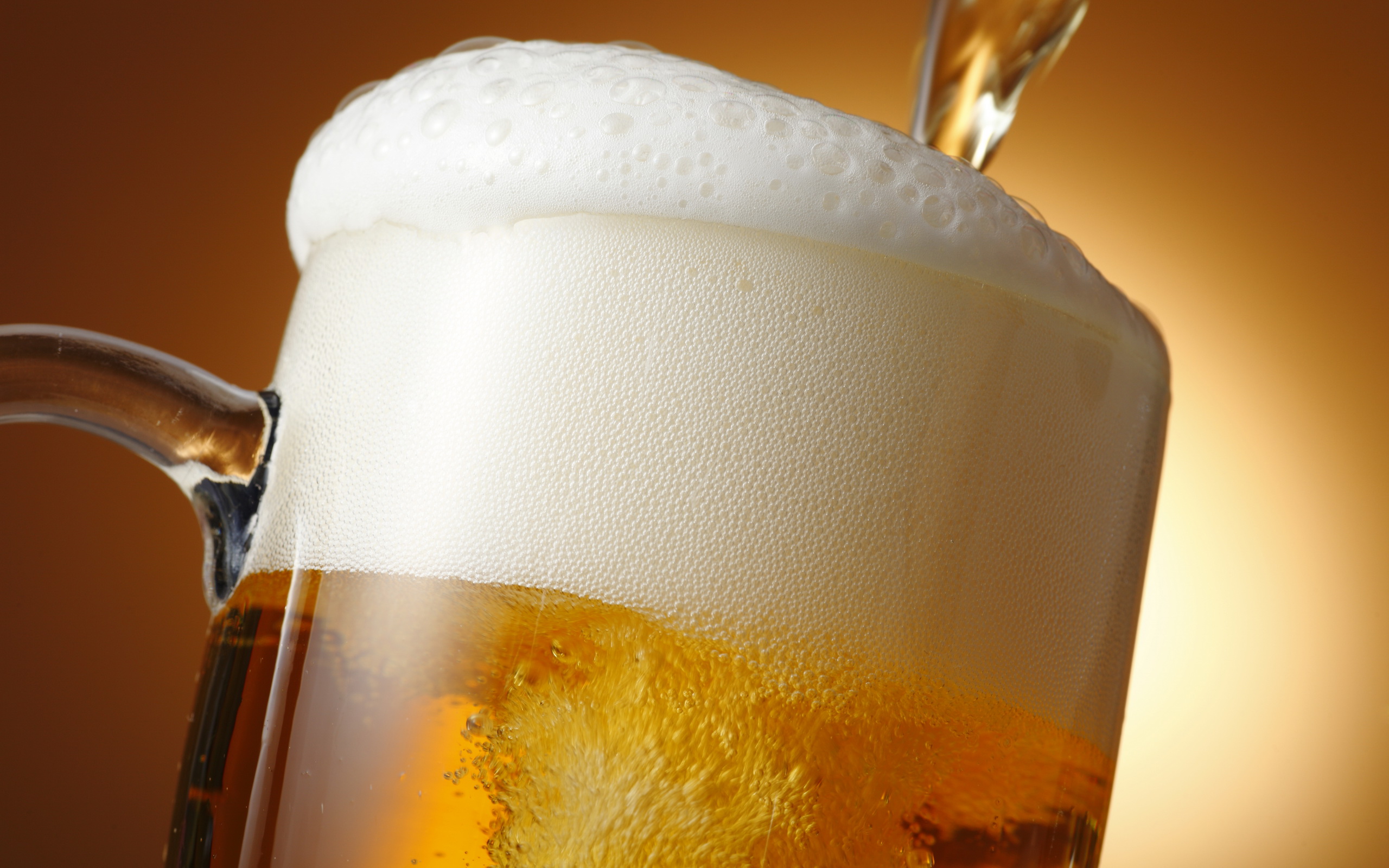
Content
- What should be the correspondence between the type of glass and beer?
- Types of beer glasses
- What materials are beer glasses made of?
- A set of glasses for different types of beer in the collection of a true “beer geek”
- How to Care for Beer Glasses
- Famous Brands of Beer Glasses
- Conclusion
- VIDEO: Types of beer glasses by volume and purpose.
What should be the correspondence between the type of glass and beer?
True lovers of the intoxicating drink know that the glassware is produced in such a variety of forms not only to earn more. As soon as the drink gets into the glass, a change occurs:
- taste qualities;
- smell;
- colors.
And the desire to quickly take the first sips sharpens the receptors, allowing you to distinguish individual flavors, color transitions and get maximum pleasure from your favorite drink.
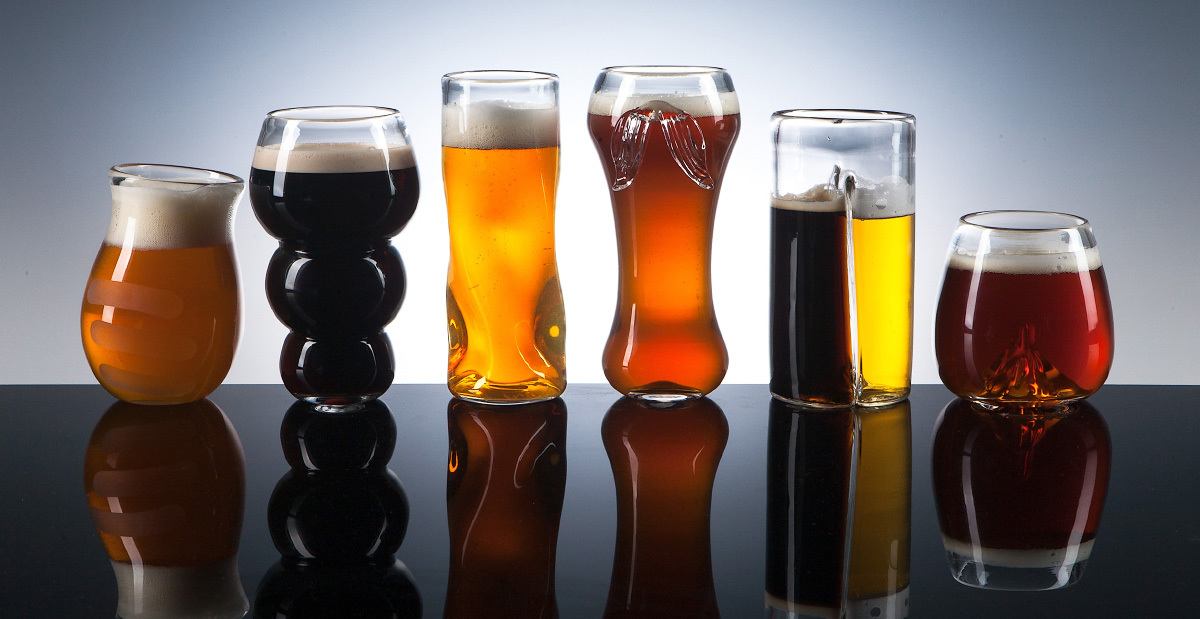
Foam formation and the shape of the glass are directly related. And the foam cap itself does not allow volatile substances to evaporate from the surface of the liquid. These components are hop oils, by-products of fermentation, spices and specific additives depending on the variety. A glass that forms a dense foam preserves the taste and aroma. And the foam cap is different for different varieties. Therefore, special dishes were developed for them.
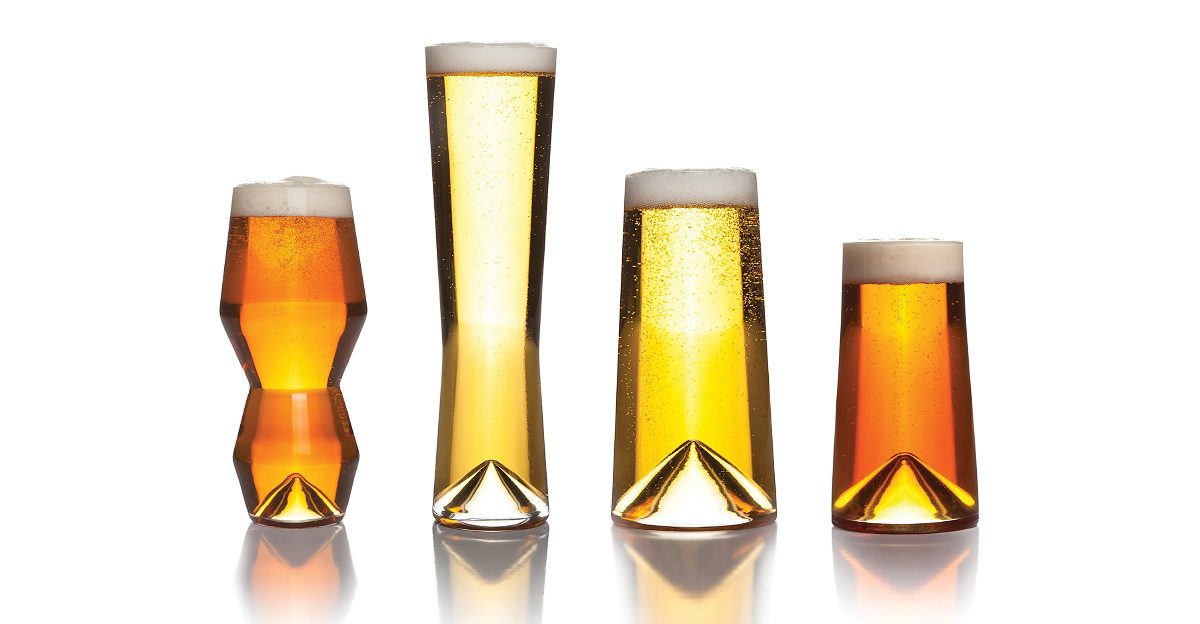
Types of beer glasses
Glass “Teku” from “Rastal”
Date of birth – 2010. The Italians working at Restal, in its local division, tried their best. The first letters of the names of the glass creators merged into its single historical name. The basis of the glassware is wine glass, which puts the beer brand Birra Baladin on the same level with wine. Several options were developed, which were tested based on the richest tasting experience of one of the creators. The first place was taken by a beautiful and functional example.
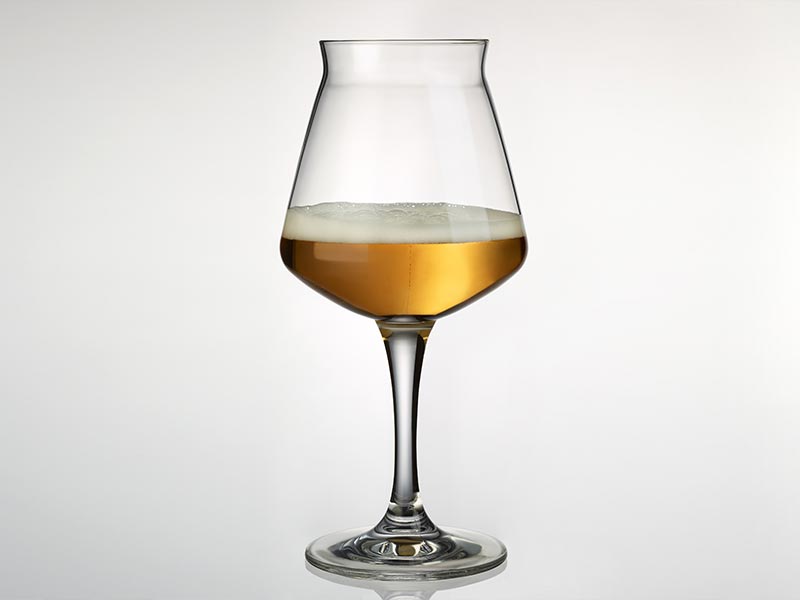
The glass is distinguished by:
- ideal quality glass;
- a magnificent design solution with a stem and a cup that opens into a bud;
- preventing the contents from heating up thanks to the density of the walls and the convenience of the leg;
- ideal transfer of taste and color palette with the possibility of foaming correction.
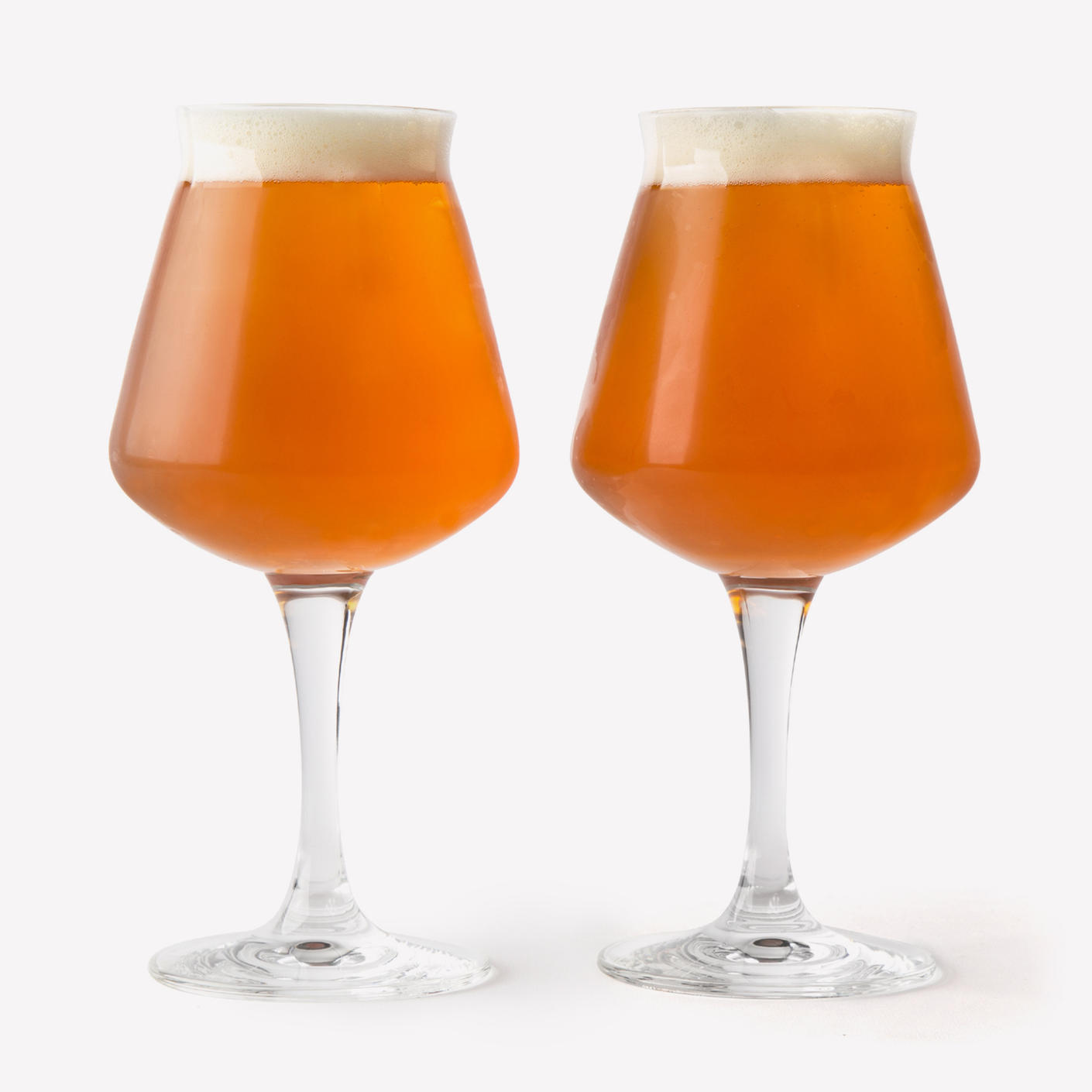
Pint glass
The name comes from the Anglo-Saxon measure of drink volume. In the British Isles it is 570 ml, while the American one holds 470 ml. They are produced in several forms:
- glass mug with a thick handle;
- conical shape;
- tulip.
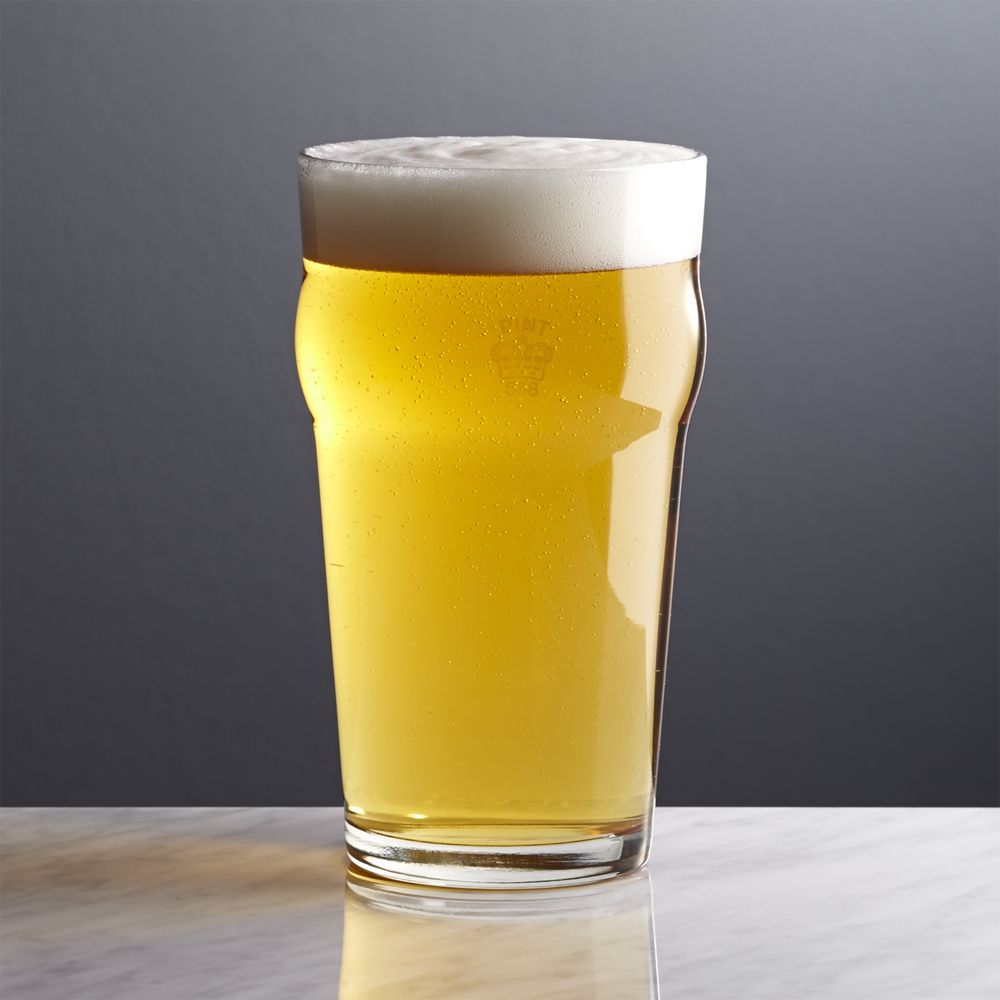
Lucky collectors will get a pint with the royal hallmark. They are no longer produced. And they were produced to control the honesty of sellers. For the same purpose, a line is put on modern mugs indicating the proper level of pouring.
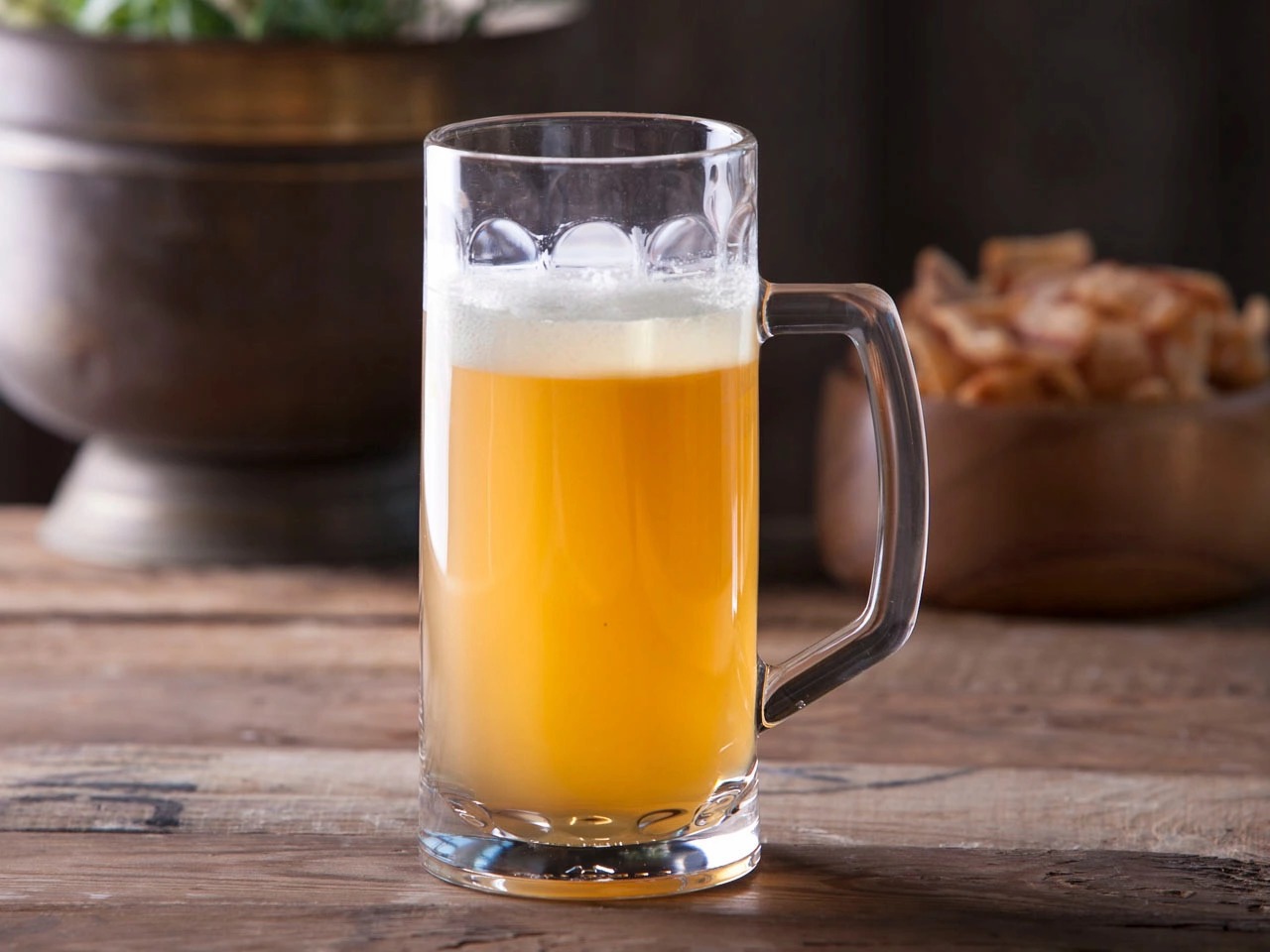
Cocktails can also be poured into canonical glasses with smooth glass walls (they have thicker walls). In the beer version, moderately strong varieties are usually served. The design feature of the nonic pint is the thickening at the top. Thanks to it, bartenders can easily work with the glasses, and visitors can hold them in their hands.
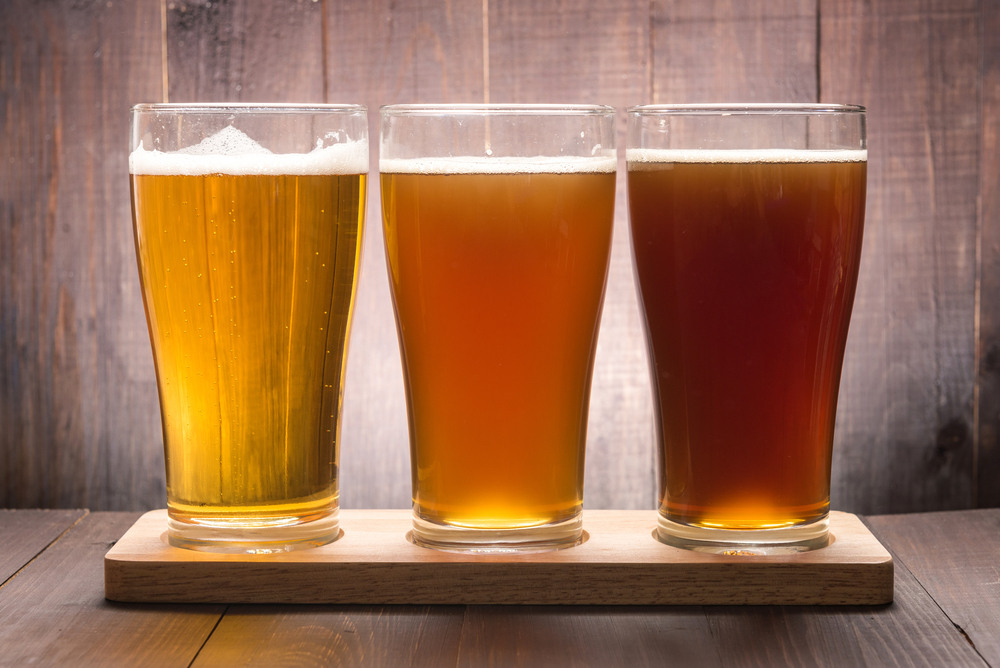
"Willebecher", or pint in German design. Characterized by narrowing at the bottom, slightly expanding at the very top and narrowing again in the neck area. Volumes vary - 200-500 ml.
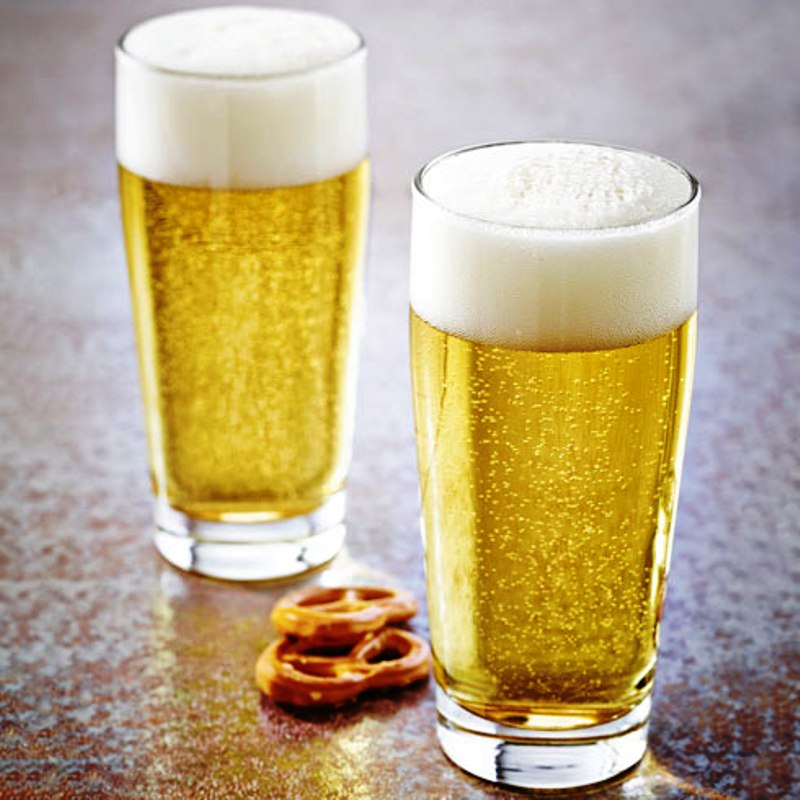
Additional information: The mass production of the Williebecher did not begin for the good life after the Second World War. This was done to save resources and rationalize production. This tableware replaced the traditional German beer mugs.
Beer glasses “Sheffield”
An English company with a rich past is famous for its metal tableware. Sheffield glasses are purely collectible. They are made of pewter and silver with richly decorated handles, lids and engravings on the walls.
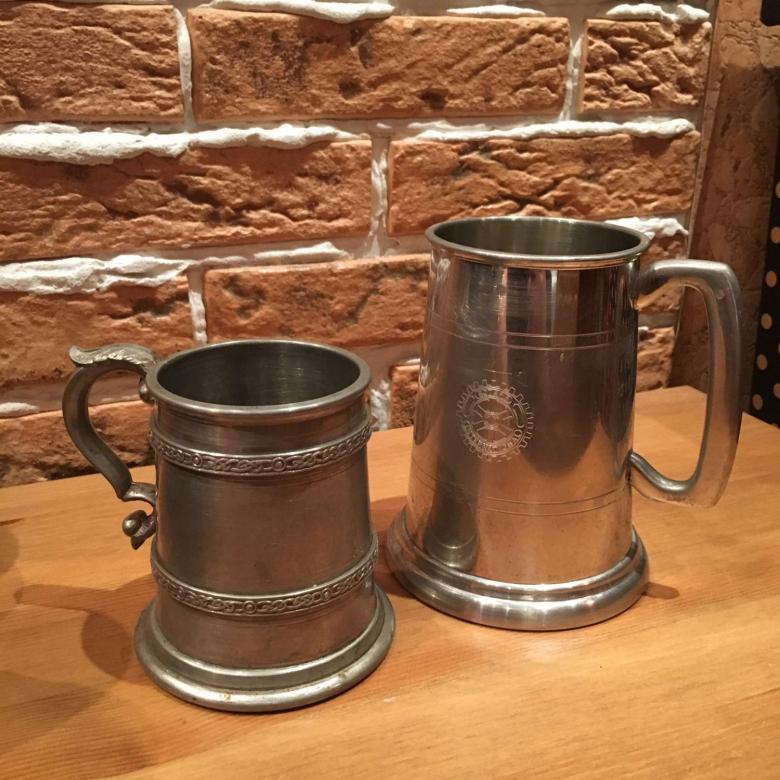
Beer glass "Nostalgia"
A beer mug variant that came to us from the already distant times of the Soviet Union. But they are still in production and can be purchased in some large shopping centers. Since Soviet times, there was a strict GOST for this product, but in a large country, the products were somewhat different at different glass factories.
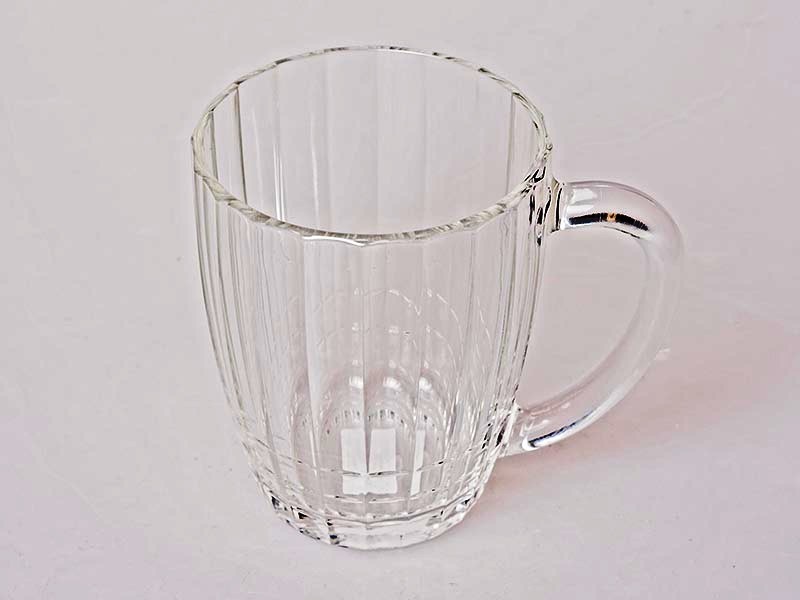
Modern manufacturers make something similar, although experts claim that the new products are lighter than their historical predecessors. The stripes at the bottom of the glass were used to pour vodka "for three" (as history researchers claim, either jokingly or seriously).
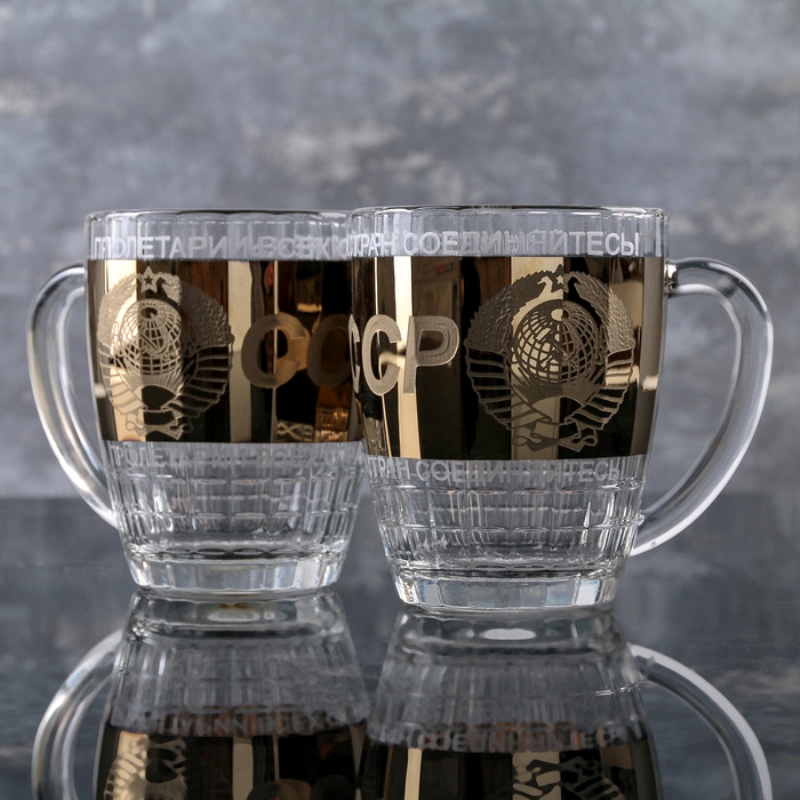
Beer glass "Boot"
An original representative of the world of beer glassware. The origin is connected with the legendary army epics. The general who won the battle kept his promise and used his boot as a container for beer. The capacity varies - the largest capacity is 2 liters. The product is rather a souvenir, although in practice it is used by German and Austrian beer lovers.
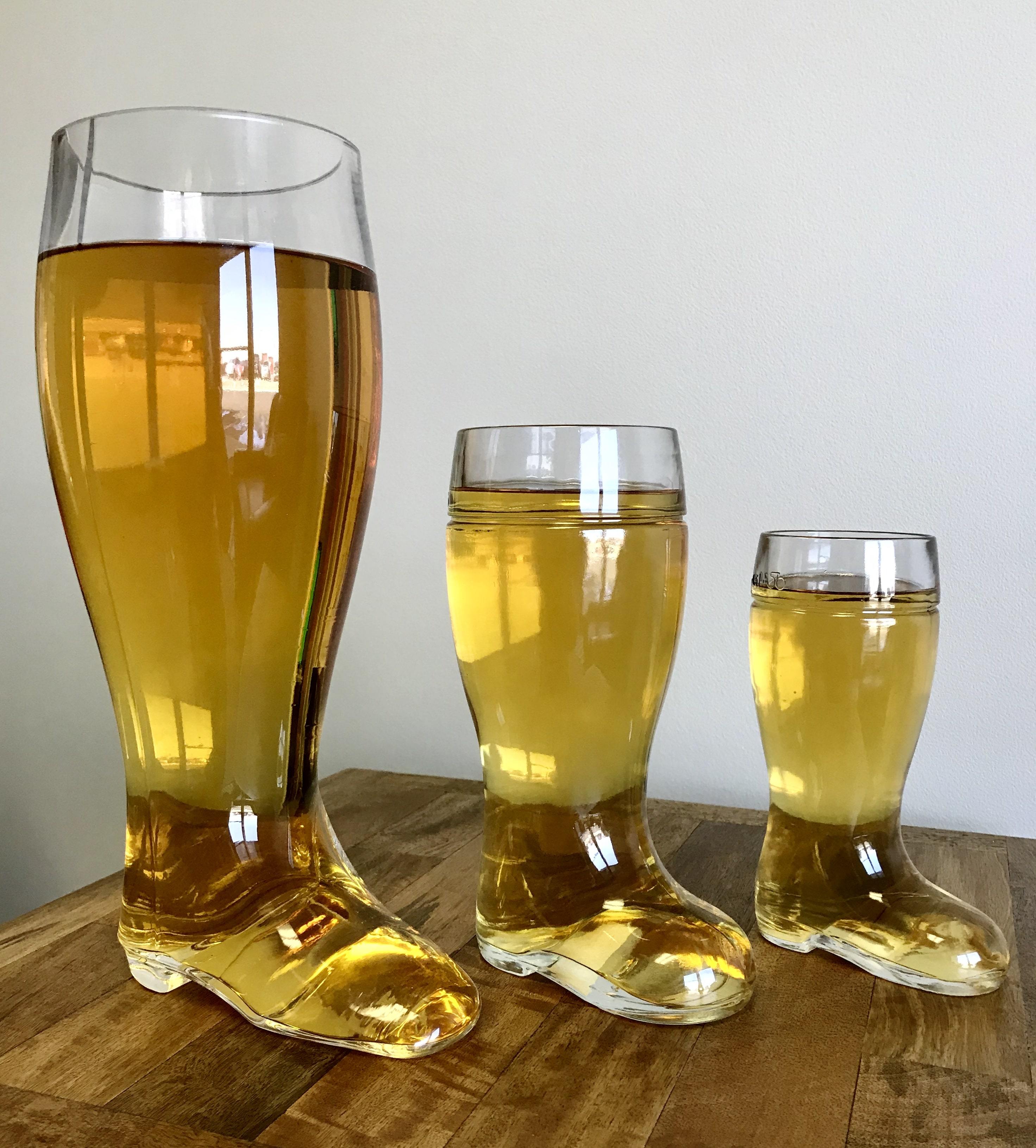
Soviet beer glass
Beer mugs for Russia and the entire post-Soviet space have long been the most common utensils for the popular intoxicating drink. With craft innovations, innovations have also appeared in relation to containers, but we will not discount the "classics" either. Thanks to the thick glass and strong handle, the Soviet beer glass maintains the initial temperature for a long time and the body of the hand cannot affect its condition.
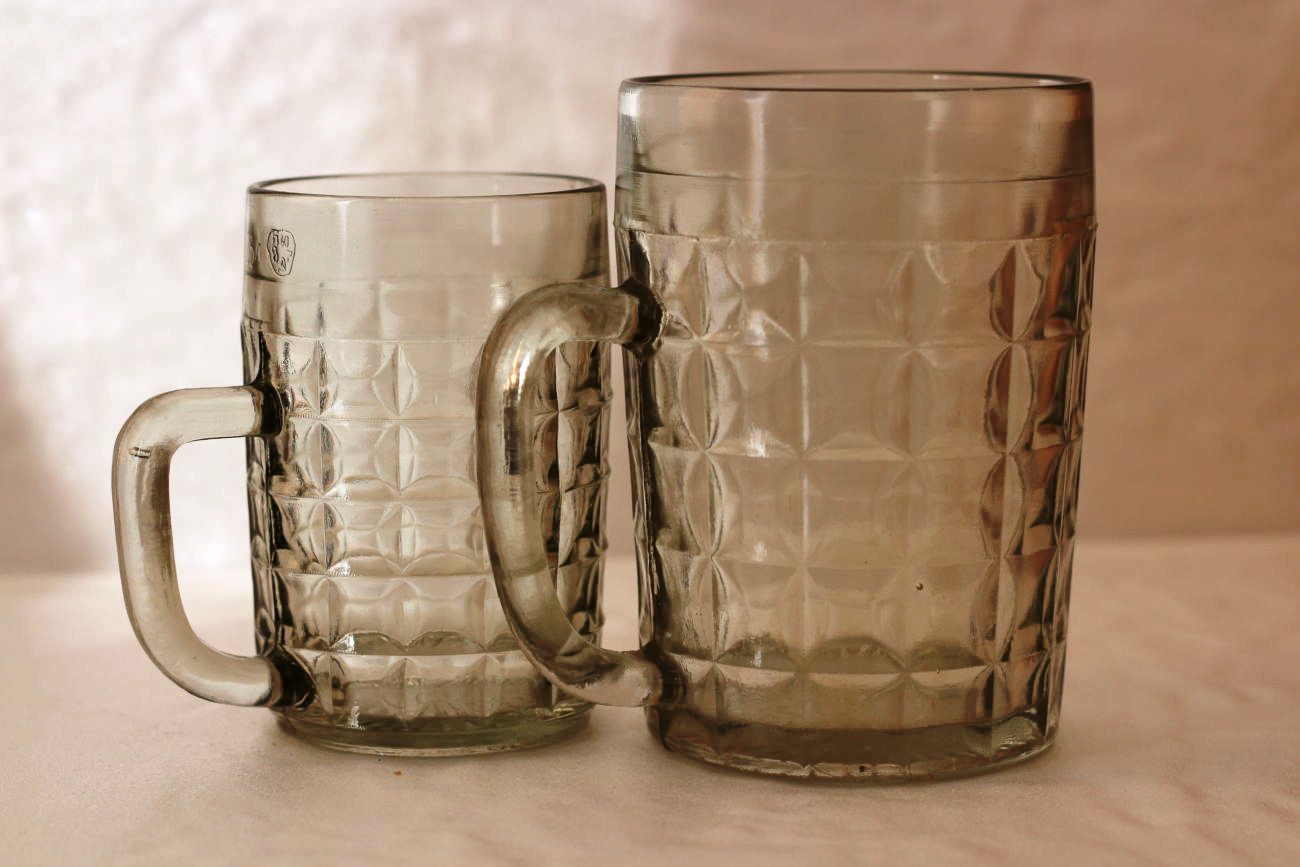
The glassware can be cylindrical with a smooth outer surface of the walls or rounded, with depressions along the entire perimeter. Czech and German lagers are drunk from such glasses, as well as weak English ale. British mugs had a similar shape. They had rounded depressions and were the main containers for alcoholic drinks before the appearance of the pint glass.
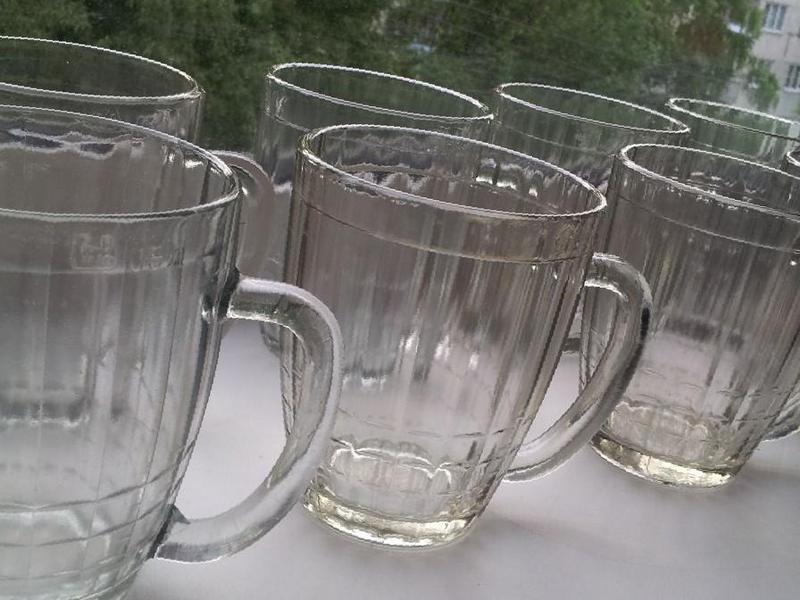
Tulip Glass
Tulip, or tulip – has the shape of a flower bud of the plant of the same name. A convex bowl, narrowing towards the top and slightly expanding closer to the neck, is placed on a stem. It is intended for lambic, gueuze, strong ales and pale ales. Very popular in Belgium. "Thistle" is a modified version of the container. It is intended for Scottish ales, wee-haves.
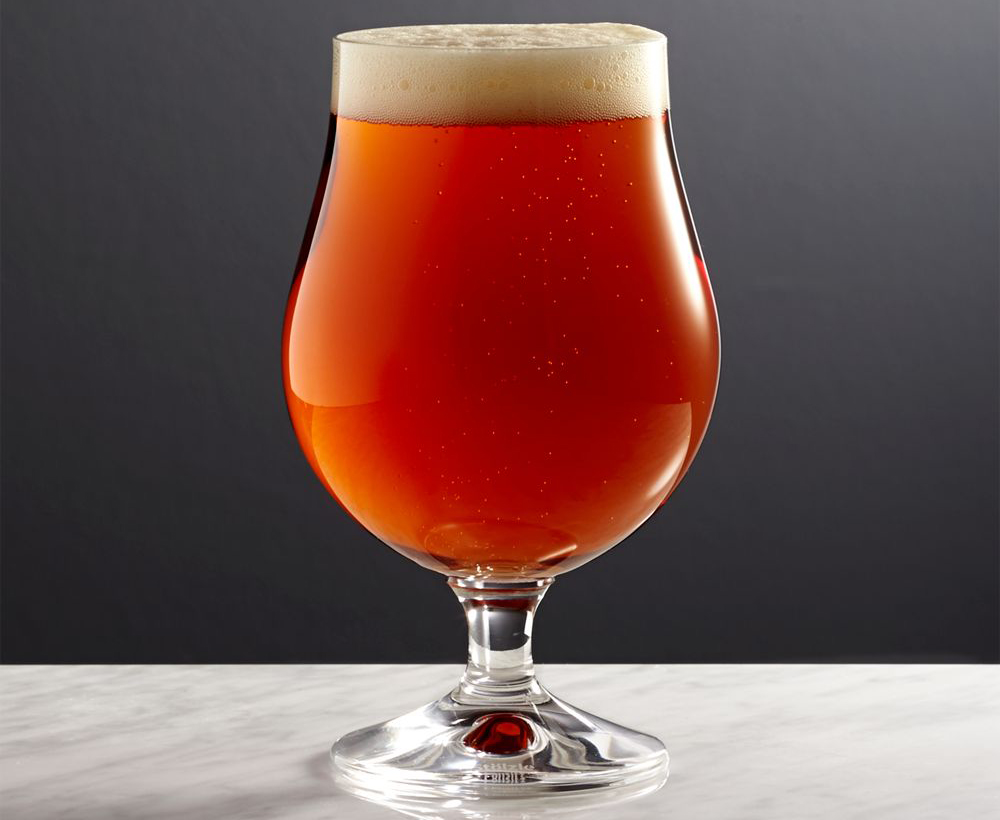
Innovative glasses with ice compartment
In order not to spoil the taste of the intoxicating drink by directly adding ice to it, modern manufacturers have released special mugs with an ice compartment onto the market. Plastic versions have a section in the form of a hollow column in the middle, or a section attached to the inside near the handle.
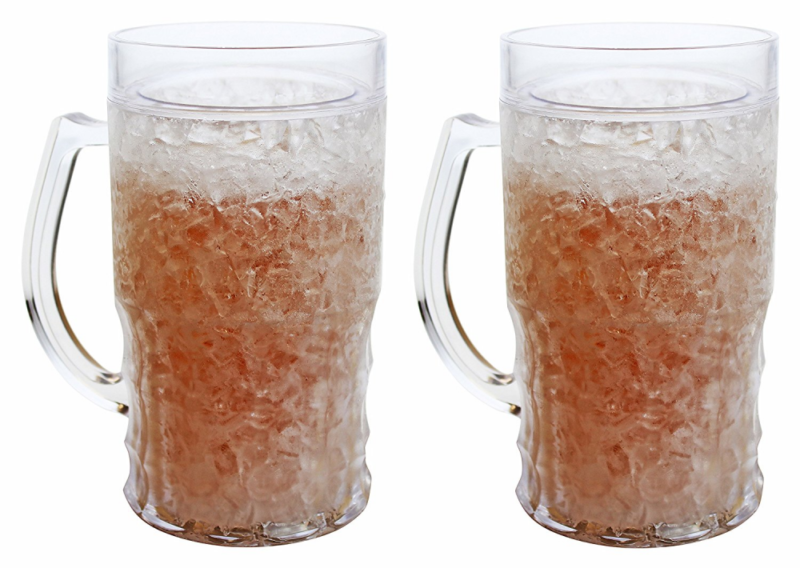
Additional information: Traditionally, beer is served cold, quenching thirst during the summer heat. But one 17th-century treatise claims that the cold amber drink worsens digestion, describing the benefits of drinking it warm.
What materials are beer glasses made of?
There are many types of beer in the world, as well as the shapes of the glassware for it. It remains to understand the materials from which mugs and glasses are made. And they have been very different throughout the history of brewing, starting with the ancient Sumerians.
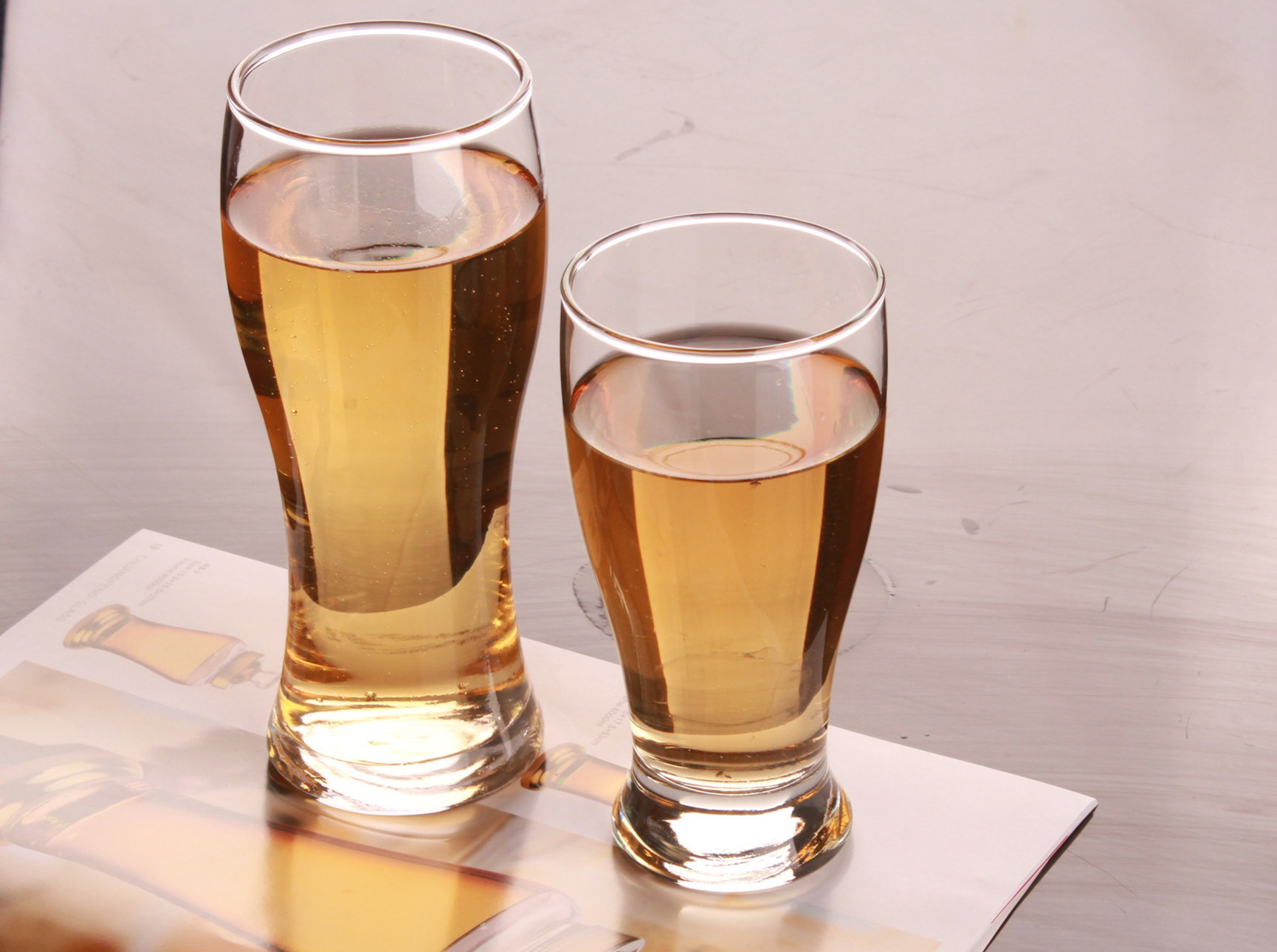
Glass
Modern beer establishments are filled with glass, regardless of shape, thickness, year of manufacture and manufacturer. The tradition appeared long ago, but the reasons for it are simple and clear. Dishes made of this material are easy and convenient to care for and store. It is inexpensive, so replacing broken glass is not difficult and does not require significant financial costs.
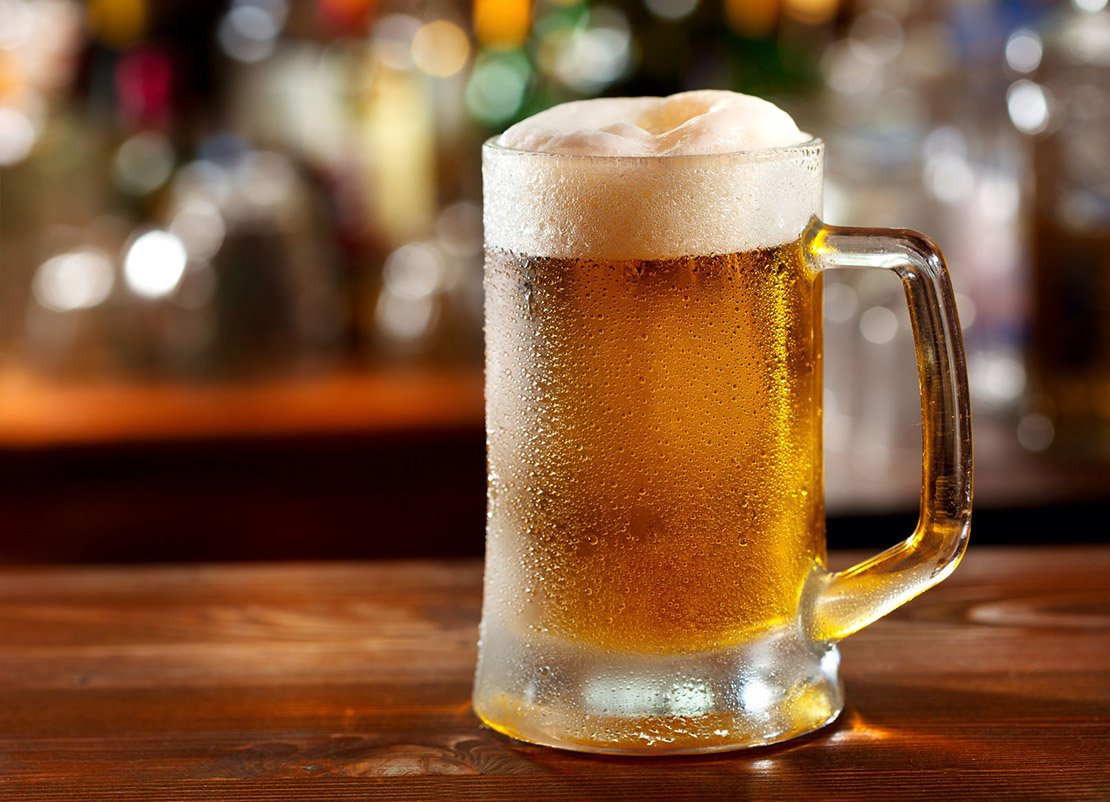
And the glass goblet has taken root, offering beer customers advantages that other materials cannot boast of. Transparent glasses show all the beauty of the sparkling foamy liquid. And what is the sound of glass when clinking glasses - an invariable attribute of beer gatherings of men's company. The variety of shapes and sizes of glassware is also striking: from full-weight impressive glasses to thin-walled women's options.
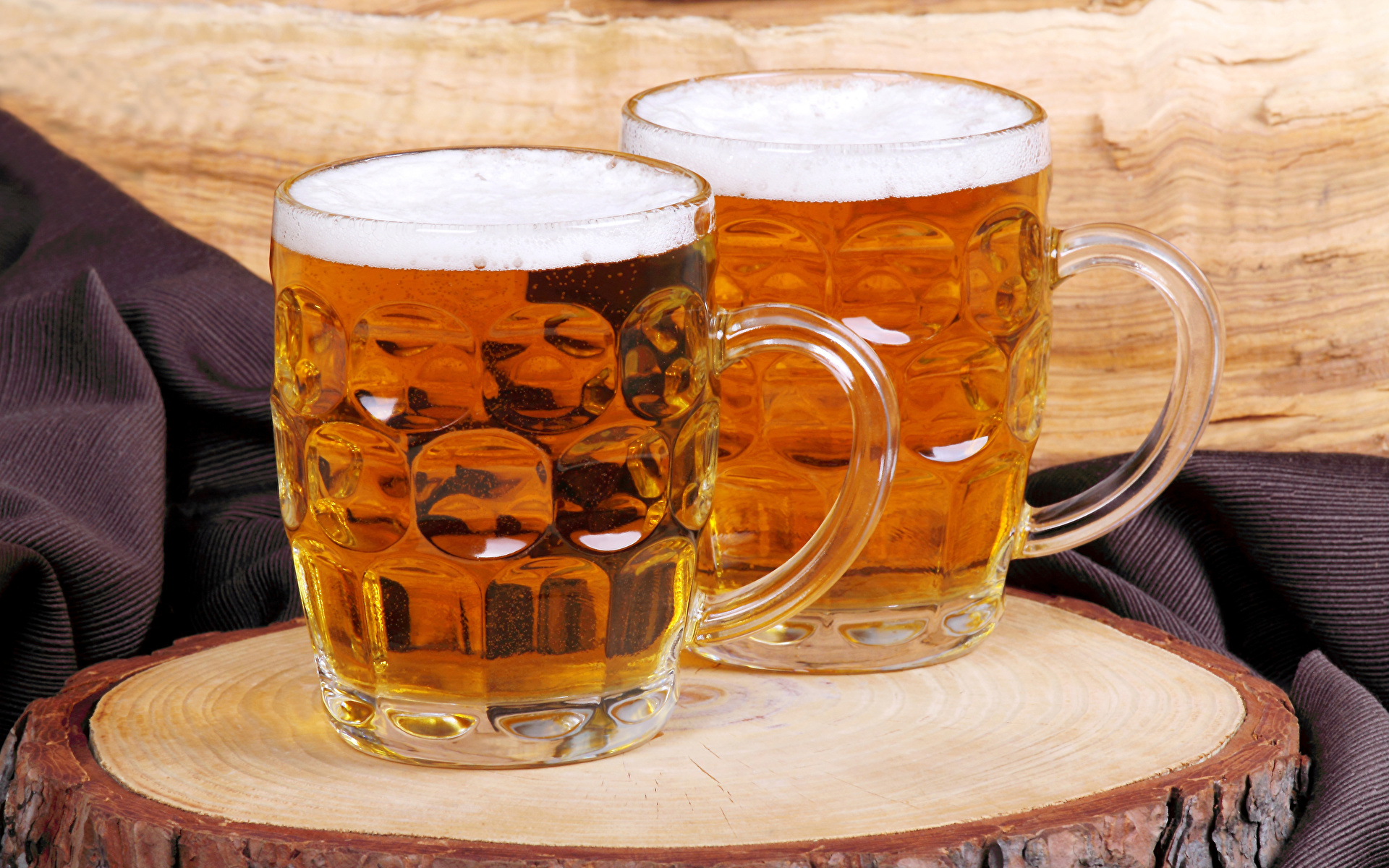
Ceramic
Clay as a natural material is ideal for the production of terracotta ceramics for beer. The tactile unusualness of such dishes is combined with its ability to hold the temperature of the malt drink well and for a long time. The tableware market is widely represented by versions of ceramic beer glasses prepared for the application of a sublimation pattern. Their main advantage is the ability to apply a unique pattern, making the mug an excellent gift. Another side of this opportunity is to decorate a craft bar with exclusive tableware. Delicious beer in unusually beautiful containers.
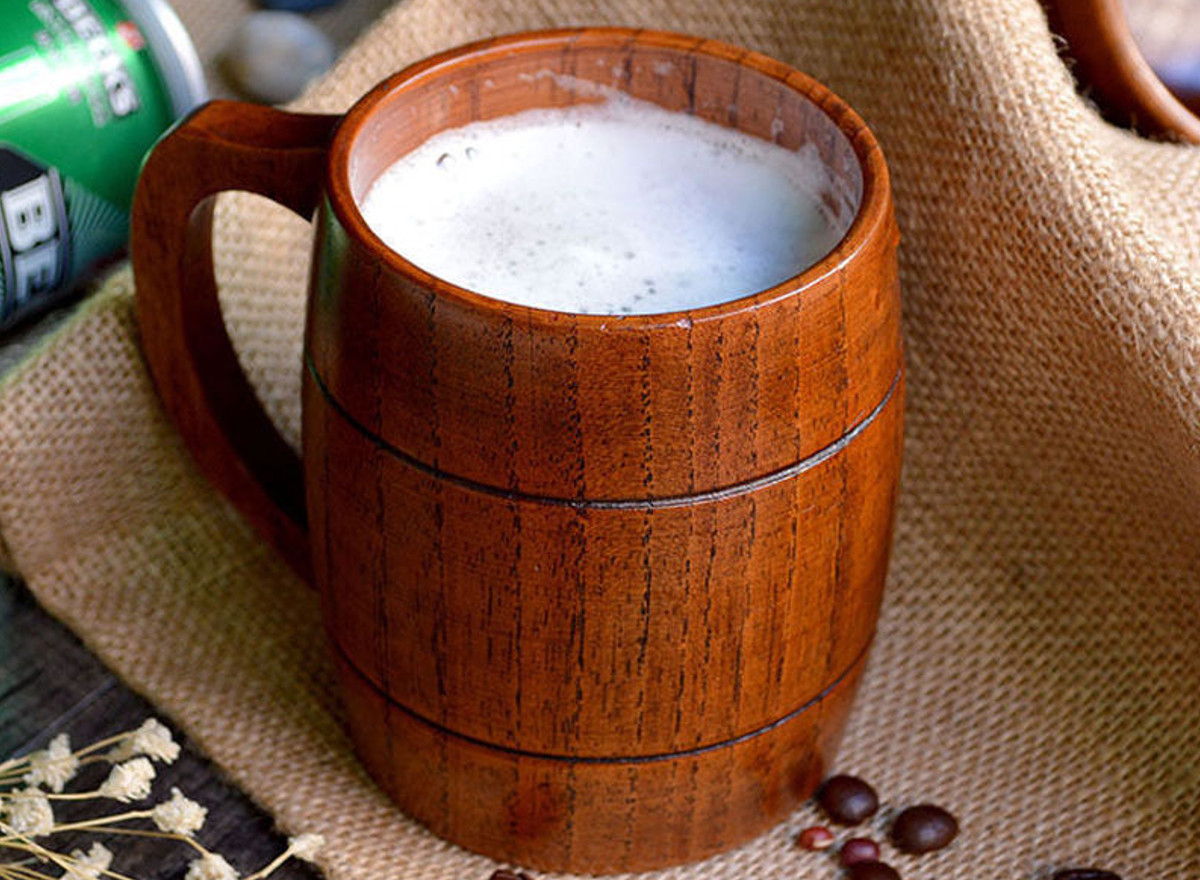
Additional information! Wood has its positive and negative sides. But the material was widely used by our ancestors to produce mugs for alcoholic drinks. You need to be prepared for a change in the taste of beer as a result of reaction with the natural material. This is expressed in the appearance of a slight sourness. Authenticity associated with domestic history is another reason why wooden glasses should be present in the collection.
A set of glasses for different types of beer in the collection of a true “beer geek”
You should start collecting with standard glasses, which will become the backbone of the exhibition. We are talking about German and Irish nonics, canonical options, tumblers. Half-volume standard glasses are convenient for savoring bottles for two. Glasses with a dual purpose, from which you can drink champagne, cognac, wine in addition to beer, will come in handy. Then move on to tulips, snifters, cups.
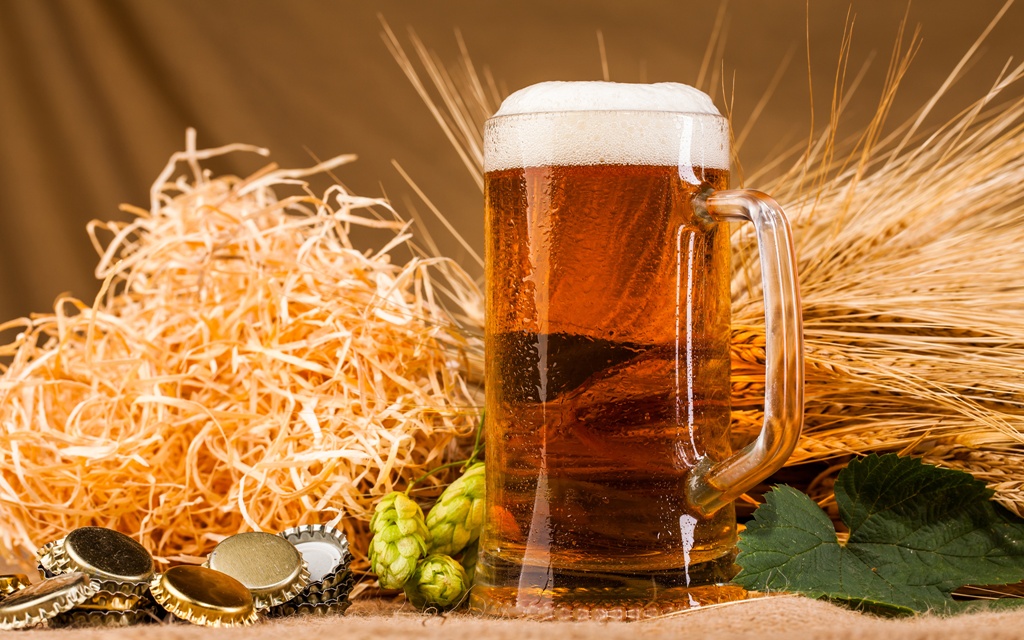
Look for a growler separately - the American name for a beer siphon with different capacities (from 1 liter). The bail mechanism, rubber seal and ceramic stopper perfectly seal the contents of the vessel, which is used to buy craft beer at home. And you won't be ashamed to put it on the table.
How to Care for Beer Glasses
It is not possible to maintain glasses in a decent condition using a dishwasher. The detergent must be removed from the walls, otherwise the taste and durability of the beer foam will suffer. The operation of the machine also has a negative effect on the condition of the logos. Wash by hand using odorless products. The sponge must be separate, you will need a brush to clean the bottom. The washing process continues until the water flows freely without streaks and drops on the glass.
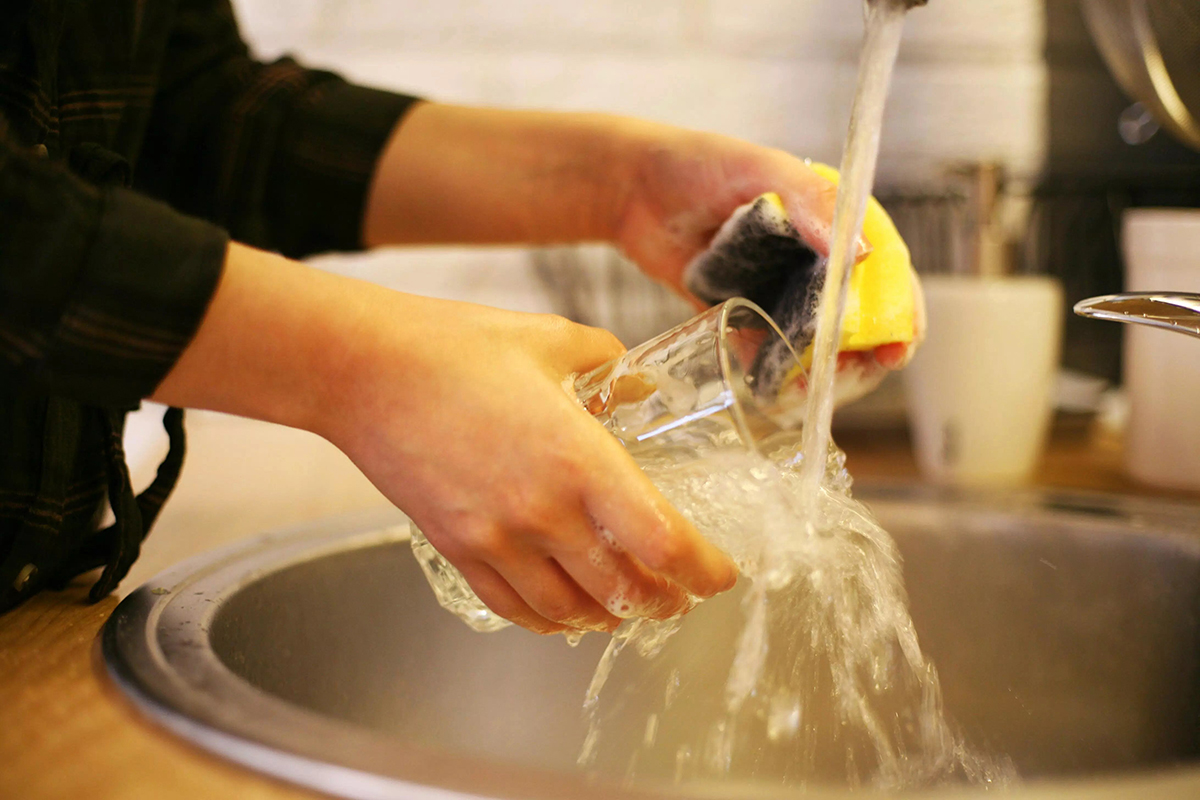
Famous Brands of Beer Glasses
There are many companies that produce beer glasses as a gift for a man. They can also become a wonderful decoration for a home collection.
Rastal is a family business with a century of experience, which has become an international group with 30 enterprises. One of the leaders in the glassware market.
Spiegelau – the company has been operating since the 16th century. Bavarian glass combines centuries-old traditions and modern technologies. Prestige and quality are maintained thanks to the blown production method.
Luminarc is a brand of excellent French tableware, which also produces glass beer glasses.
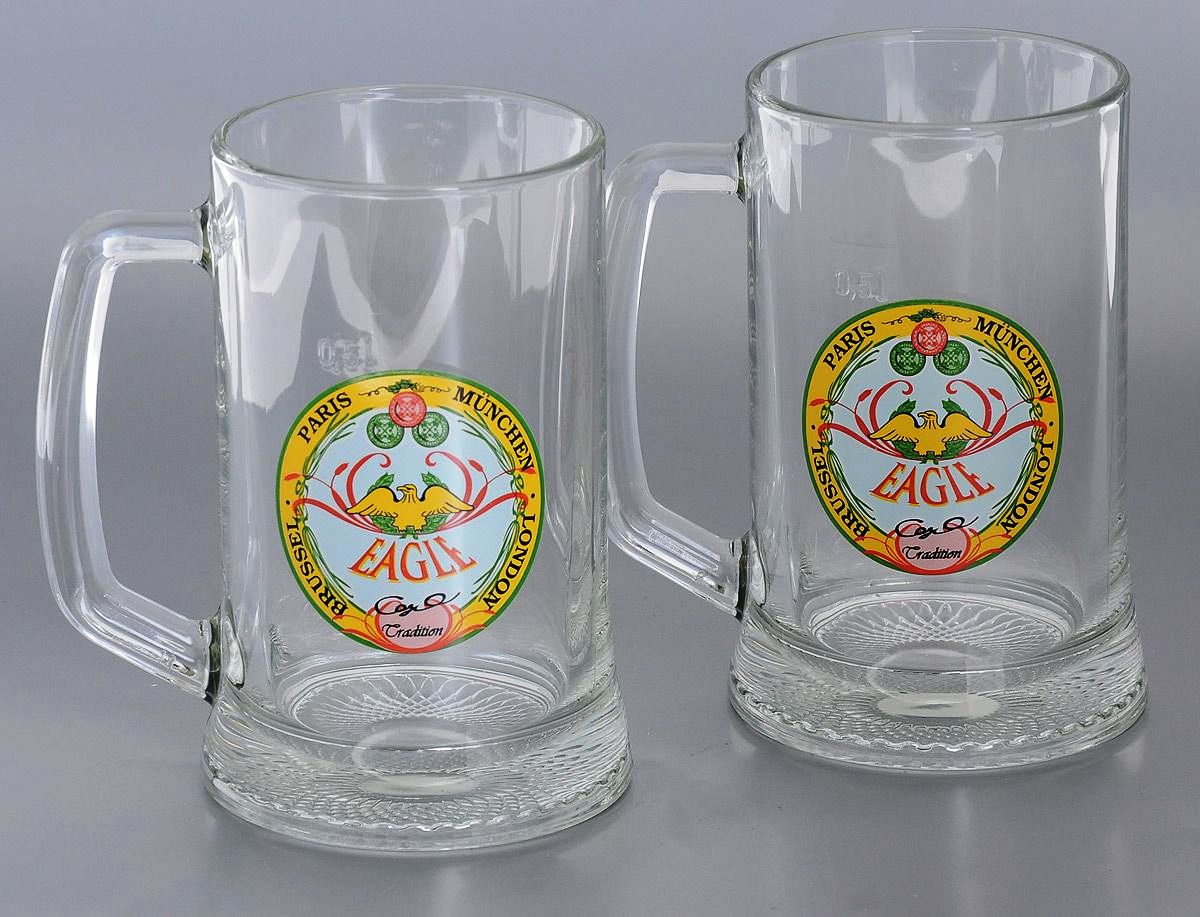
Conclusion
The taste of beer depends not only on the manufacturer, but also on the glass in which it is served. It is a matter of the features of the shape that holds the foam cap and the materials from which the glassware is made. Their diversity can serve as a pretext for creating unique home collections and this is a great gift for a man.



"Drink from a glass" - what village are you from, boy?
But in vain, the man tried so hard